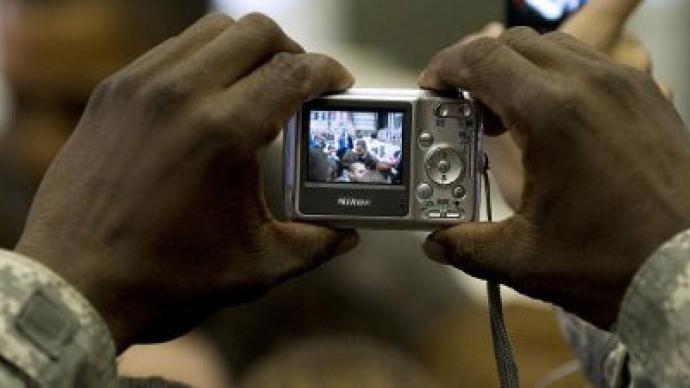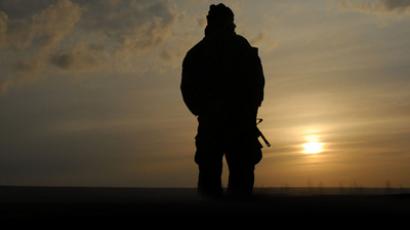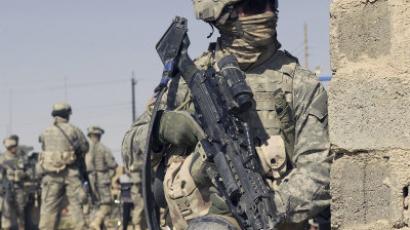No photo – no problem: NATO to ban its Afghan forces from taking war-zone pics

NATO forces in southwestern Afghanistan will implement a total ban on soldiers’ taking personal photos during military operations. This comes in the wake of major scandals involving US servicemen being pictured with dead Taliban fighters.
The ISAF command in Helmand province announced only official photos will be allowed to be taken. The restriction is going to affect 36,000 troops, including 15,800 US Marines.A vast array of amateur photographs and videos filmed by soldiers will now be cut out of the picture. In particular, the ISAF hopes to do away with those embarrassing incidents portraying marines urinating on the bodies of prostrate enemies, or video clips showing how the US soldiers conduct themselves in a real skirmish.The current ISAF commander Major Gen. Charles M. Gurganus emphasized that documentary photos of war casualties and atrocities “can undermine the war effort.” While previous 20th century war efforts like the Vietnam debacle lost support at home after critical reports exposed the horrors of war, technology has made the 21st century an entirely different beast. With a slew of high-tech gadgets allowing anyone to be a camera person, the gore of the Afghan war is leaking onto the Internet in gigabytes.Gen. Gurganus called souvenir photographs “happy snaps,” as cited by marinescorpstimes.com, stressing they should only be taken within bases and never during combat missions.The ISAF command in Helmund province has warned servicemen of the new policy, Gen. Gurganus said.He explained soldiers should realize that making cool memorable pictures with dead Taliban fighters is a bad idea and there will be consequences.“This isn’t rocket science,” he noted.The ISAF Central Command general order is clear about what is restricted from being filmed and photographed. For example, it is strictly forbidden to take photos of NATO aircraft at Bagram Air Force Base. Handmade explosive devices should stay off camera – as well as the destruction and casualties they cause.While there is no direct US Army order explicitly forbidding recreational photos from being taken outside military bases, the US military has always prohibited photographing and filming of war prisoners and casualties.US Central Command General Order 1B outlines the ethical requirements for deployed service members. Commanders in Helmand have taken it a step further to underscore the need to make smart choices, Gurganus said.However, US patrols have long been using digital cameras to collect evidence and intelligence. The ISAF command will continue this practice, albeit with stricter controls as to where those images end up. Maintaining operational security is the primary reason to be attended, claims Lt. Col. David Bradney, whose unit is deployed to the volatile Sangin district. He further condemned the widespread practice of illegally using helmet-mounted cameras in combat and posting first-person video on the web. “It is amazing what ends up on YouTube and flying through email and onto the Internet,” Bradney told journalists.The US command has specific reason to be concerned over videos being leaked. Film portraying US servicemen in combat could be used by the Taliban as a propaganda tool against allied forces. The Taliban can also learn tactics being used by of western forces on such recordings. The US Defense Ministry has been forced to apologize when American servicemen posed with the body parts of Afghan suicide bombers or urinated on dead Taliban militants. But whether the ISAF is looking to fix systemic problems of misconduct or merely sweep them under the rug with the latest ban remains to be seen.














